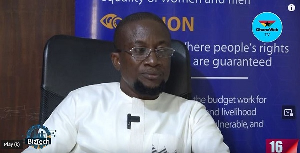The African Academy of Sciences (AAS) and the World Health Organization (WHO) today agreed on a strategic partnership that will leverage innovations and sustainably scale them up to ensure sustainable development in Africa.
Through this arrangement, the AAS and WHO would ensure the wide availability of quality, safe, effective, affordable and sustainable high impact health practicable interventions to address health challenges in the continent.
Professor Felix Dapare Dakora, the President of AAS and Dr Matshidiso Moeti, the WHO Regional Director for Africa, sealed the pact with the signing of a memorandum of understanding at the on-going 15th edition of the Grand Challenges Annual Meeting in Addis Ababa, Ethiopia.
The GCAM, which was being held in Africa for the first time in 10 years is being co-hosted by the African Union, Ethiopia’s Ministry of Health, Grand Challenges Canada, the United States Agency for International Development and the Bill & Melinda Gates Foundation.
The AAS would implement the partnership through its Grand Challenges Africa (GC Africa) programme that promotes Africa-led innovations to help countries better achieve the SDGs by awarding seed and scale-up grants to the continent’s most impressive solutions.
To effectively operationalized the accord, the parties hope to maximise WHO’s political clout to advocate to and provide governments with strategic information on most promising innovations from the local and global pipeline, ensuring these are aligned to the needs of the populations being served.
The WHO and the AAS would use this partnership to improve efficiencies during the delivery of these innovations to advance equitable access to quality healthcare.
Professor Dakora said, parties to the agreement would develop, launch, manage and support innovations in maternal health, living a healthy, malaria, tuberculosis that were high priority and are aligned to the Sustainable Development Goals (SDGs) and the African Union Agenda 2063
He urged Ghanaians in the Science, Technology and Innovation sector, to form partnerships to tap into the opportunity to improve the many challenges in the health sector.
“Ghana has her own stake in this MOU. If players in the sector will act fast, aggressive and come to the table with practicable innovations and technology they will benefit immensely from this initiative.
“There are many funding opportunities available to people in the science and technology ecosystem but often many Ghanaians including West Africans do not take advantage of it as compared to their counterpart in East Africa. We need to walk the talk,” he said.
Dr Moeti, said with a decade left to achieving the SDGs, the AAS and WHO were posed to accelerating the impact of innovations, some of which had already demonstrated success in significantly improving the health, lives and productivity.
So far AAS funded which are tackling maternal, neonatal and child health; water sanitation and hygiene; antimicrobial resistance; drug discovery; and data sciences.
GC Africa is one of the AAS programmes implemented through the funding, programmatic and agenda setting platform, the Alliance for Accelerating Excellence in Science in Africa (AESA) an initiative of The AAS and the African Union Development Agency (AUDA-NEPAD) supported by Wellcome, Bill & Melinda Gates Foundation and Department for International Development (DFID).
Health News of Tuesday, 29 October 2019
Source: ghananewsagency.org

















